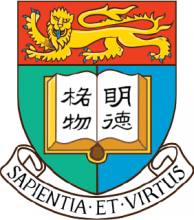About Namangan Engineering Construction Institute
Namangan Engineering Construction Institute was originally established in 1991 as the Namangan branch of the Tashkent Institute of Mechanical Engineering. In 1998 it was renamed Namangan Engineering and Pedagogical Institute and in 2017 it became Namangan Engineering Construction Institute.
As its name suggests, the institute is located in Namangan, a city in eastern Uzbekistan. Since the 17th century, the city has been an important trade and industrial centre.
There are seven faculties at the university: construction, industry information, engineering communications, transport, mechanical engineering, energy and labour protection, and economics and management. Within each faculty are several departments which offer both undergraduate and graduate degree programmes.
There are a number of different clubs and societies on offer for students to join such as volleyball, table tennis, football and chess. Every year, these clubs represent the university by competing at national and international competitions.
The university has developed partnerships with more than 30 higher education institutions in countries across the globe such as Spain, Italy, Germany, Turkey, Sweden and China. These partnerships facilitate academic and scientific exchanges, which enable students to study abroad for a semester or an entire academic year.
The university has a fully equipped IT park, as well as an Information Resource Centre.
Explore these featured universities
Explore rankings data for Namangan Engineering Construction Institute
Compare universities on their key stats
Key statistics
- 0%Percentage of International Students(1)
- 15.1No. of students per staff(1)
- 11 : 89Student Ratio of Females to Males(1)
- 6,750Number of FTE Students(1)
- 15%Proportion of ISR Publications(1)
Subjects taught at Namangan Engineering Construction Institute
Arts & humanities
- Architecture
Life sciences
- Agriculture & Forestry
Business & economics
- Business & Management
- Accounting & Finance
- Economics & Econometrics
Physical sciences
- Geology, Environmental, Earth & Marine Sciences
Engineering & technology
- General Engineering
- Chemical Engineering
- Electrical & Electronic Engineering
- Civil Engineering
Computer science
- Computer Science










